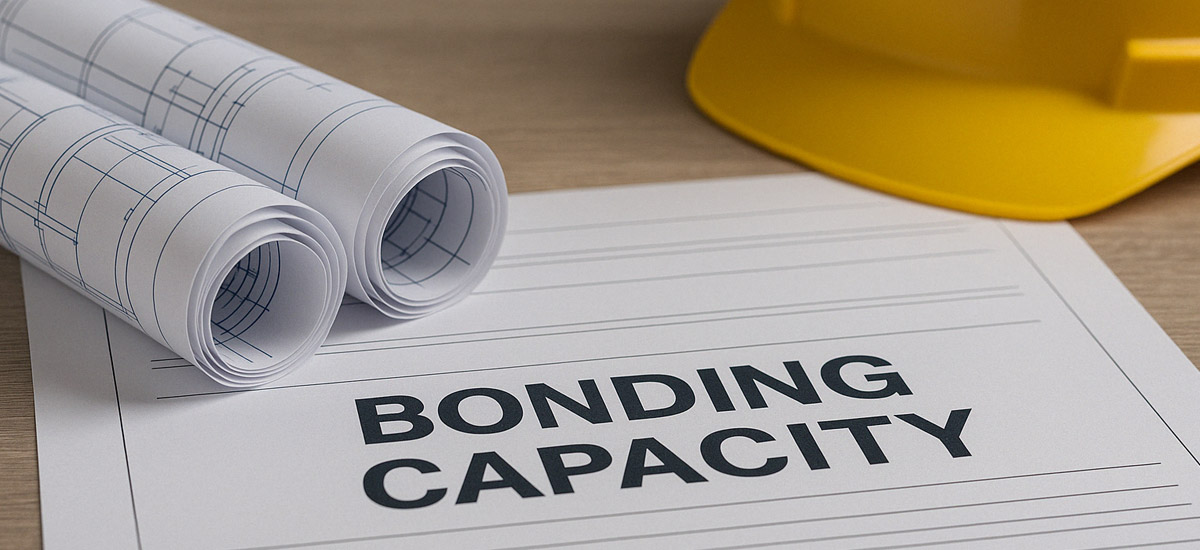If you have been pursuing construction projects in the civil sector, you have likely heard about surety bonds. What are they, and how can you obtain them? Let’s find out in this guide!
Surety bonds are a type of financial agreement that serves as a guarantee between three parties: the principal (the person who is obliged to do something), the obligee (the party to whom the bond is payable), and the surety (the company that backs the bond).
It is a guarantee that the principal will fulfill their obligations, whether it’s completing a project, paying a debt, or adhering to regulations. If the principal fails to meet these obligations, the surety steps in to cover the losses.
In this article, we will discuss what surety bonds are, and how they work. We will also enlist all the surety bond requirements you need to fulfill to get it.
What are Surety Bonds and How Do They Work?
Surety bonds are financial tools designed to protect one party against the failure of another to meet their obligations.
When a principal (such as a contractor or business owner) is required to perform a task, the obligee (often a government entity or project owner) may require a surety bond as a form of security.
The surety company provides this bond, guaranteeing that the principal will fulfill their obligations. If the principal fails, the surety company compensates the obligee for any losses up to the bond’s limit.
The process begins with the principal applying for a surety bond, during which the surety company assesses its ability to meet the bond’s requirements.
This evaluation can consider the principal’s financial stability, credit history, and experience. If approved, the surety bond is issued, and the principal can proceed with their obligations under the bond’s protection.
Depending on the type of bonding requirement and the value of the bond, this application process can be simple and straight forward; or quite complex and stipulate a significant amount of information.

What are the Categories of Surety Bonds?
Before we move to surety bond requirements, let’s go over its various categories. Here’s a detailed breakdown of different types of surety bonds:
Contract Bonds
Contract bonds are crucial in the construction industry. They ensure that a contractor will adhere to the terms of a contract. Performance Bonds guarantee that the work will be completed to the agreed standards, while Labour & Material Payment Bonds assure that subcontractors and suppliers will be paid by the principal hiring them.
If a contractor fails to fulfill the contract, the bond compensates the project owner, covering costs to hire a new contractor or complete the work.
Commercial Bonds
Commercial bonds cover a wide range of both construction and non-construction related obligations required by government agencies for businesses to operate legally.
These include License and Permit Bonds, which ensure that businesses comply with regulations, and customs bonds, which protect excise and tax departments of countries that wish to ensure importers pay the required duties owed.
For example, a contractor’s license bond ensures that a contractor will operate in accordance with local bylaws, providing recourse for customers if regulations are violated.
Court Bonds
Court bonds, although also a type of commercial bond, deserve their own category to some extent. They are used in legal proceedings to ensure that individuals or entities meet their court-ordered obligations.
It is common in Canada to see requirements for Administration Bonds, Committeeship Bonds, and other guarantees where individuals are incapable of managing their assets.
These bonds protect the assets and ensure that they are handled responsibly.
Fidelity Bonds
In Canada, fidelity bonds are actually no longer a surety bond product and have been replaced with an insurance policy.
This insurance policy is often called “Employee Dishonesty” or 3D Fidelity Insurance coverage. This is a bit of a misnomer in the industry, but fidelity bonds are no longer offered as surety bonds in Canada.
We recommend you contact your insurance broker if this is what you are looking for.
How Do Surety Bonds Differ From Insurance Policies?
Surety bonds and insurance policies are often confused. Let’s see how they differ in key aspects:
- Parties Involved: Insurance involves two parties, the insured and the insurer. Surety bonds on the other hand involve three: the principal, the obligee, and the surety.
- Purpose: Insurance protects the insured from risk, typically covering potential losses or damages. In contrast, a surety bond protects the obligee by guaranteeing the principal’s performance or compliance. The principal is still responsible for financial damages back to the surety company.
- Risk Assumption: In insurance, the insurer assumes the risk and pays out claims. With surety bonds, the principal ultimately bears the financial responsibility. If a claim is made on a surety bond, the surety pays initially but then seeks reimbursement from the principal.
- Compensation: Insurance compensates the insured for covered losses, while surety bonds compensate the obligee if the principal fails to meet their obligations.
What Are Surety Bond Requirements?
Securing a surety bond may be either simple and quite easy, or a very thorough process. Again, this depends on the type of bond you are pursuing.
Should you be pursuing contract bonds, there are quite detailed requirements that can include:
Financial Stability & Reporting
When applying for contract bonds and what’s called a “bond facility”, the surety company will evaluate the financial stability of the applicant.
The higher the bond capacity required, the more stringent and in-depth the financial review will be.
This typically involves the review of internal financial statements including a balance sheet, income statements, aged receivables and payables listings, as well as a work-in-progress report.
To setup a bond facility, bonding companies will also want to se externally prepared, year-end accountant prepared financial statements in the form of a compilation engagement report, or review engagement statement.
These will be the pinnacle of a contractors bonding application, but additional information helps which we’ll get into next.
Experience & Reputation
Sureties consider the applicant’s industry experience and reputation.
For example, in the case of contract bonds, the surety assesses the contractor’s track record, including past project performance, experience in similar types of work, and references from previous clients and/or suppliers.
A well-established history of completing projects on time and within budget can significantly influence the surety’s decision.
Bond Application / Contractor's Questionnaire
The contractor’s questionnaire portion of the bond application is a detailed document that requires information about the applicant’s business, share structure, key staff, project history, and specific bond requirements.
Applicants must provide details such as business licenses, project contracts (for contract bonds), and other relevant documentation. Understandably, inaccurate or incomplete information can delay the bond approval process.
Creditworthiness
In some cases, credit history can be a factor when applying for a surety bond. Sureties assess the credit score of the applicant (corporately and personally) to gauge their financial responsibility and ability to fulfill the bond’s obligations.
A higher credit score typically results in lower bond premiums, while applicants with lower scores may face higher premiums or difficulty / inability securing a bond at all.

Collateral
In some cases, sureties may require collateral to secure a bond, particularly if the applicant has a lower credit score or limited financial history. Collateral can be in the form of cash, a letter of credit, or other liquid assets.
This collateral acts as a safeguard for the surety in case the bond is claimed. The amount of collateral required can vary, but it generally ranges from 10% to 100% of the bond amount.
Depending on the size of the bond requirement, corporate and/or personally owned real estate may be used as collateral to secure bonding. In the case of contract bonds in the construction industry, personal assets are not likely to be considered as collateral.
Indemnity Agreement
An indemnity agreement is typically required, where the applicant (and possibly their spouse or business partners) agrees to reimburse the surety for any losses incurred if the bond is claimed.
This agreement legally binds the applicant to cover the surety’s costs, making it a significant component of the bonding process.
Bonding Requirement Conclusion
Surety bonds are important in many industries, such as construction, importing, legal, and more.
Whether you’re a contractor bidding on a government project, a business seeking to comply with regulations, or an individual involved in legal proceedings, understanding surety bond requirements is essential.
Make sure you meet the eligibility criteria, apply for a bond, and access new opportunities in your field.
Frequently Asked Questions
What is the purpose of a surety bond?
The purpose of a surety bond is to provide a financial guarantee that specific obligations will be fulfilled. It protects the obligee (usually a project owner, government agency, or consumer) from financial loss if the principal (the party required to obtain the bond) fails to meet their commitments.
The bond ensures that contracts are completed, regulations are followed, or legal obligations are met, offering security and trust in various business and legal transactions.
How are surety bonds calculated?
Surety bond premiums are calculated based on several factors, primarily the bond amount, type of bond, specific bond wordings, the applicant’s credit score, and their financial history. The bond amount is typically a percentage of the total obligation or contract value, known as the penal sum.
You will likely be looking at somewhere between 1%-3% of the bond amount depending on these factors.
Additional factors like the applicant’s industry experience, project complexity (for contract bonds), and any required collateral can also influence the cost.
Can you get a surety bond with bad credit?
Yes, you can get a surety bond with bad credit, but it may come with higher premiums and stricter requirements, such as providing collateral.
Note that some surety companies specialize in high-risk applicants, offering bonds despite credit challenges, but the cost will generally be higher.
There are some businesses and individuals that are generally not bondable. This is usually due to a bankruptcy, criminal history, or lack of liquidity.
How does a surety bond benefit the surety?
A surety bond benefits the surety company by generating revenue through bond premiums. Additionally, the surety is protected by indemnity agreements, which hold the principal accountable for reimbursing any losses.
This arrangement limits the surety’s financial risk while providing a steady stream of income from the bonding process.






